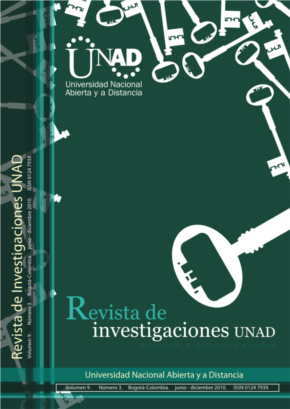Cuando la REVISTA DE INVESTIGACIONES UNAD recibe la postulación de un original por parte de su autor, ya sea a través de correo electrónico o postal, considera que puede publicarse en formatos físicos y/o electrónicos y facilitar su inclusión en bases de datos, hemerotecas y demás sistemas y procesos de indexación. REVISTA DE INVESTIGACIONES UNAD autoriza la reproducción y citación del material de la revista, siempre y cuando se indique de manera explícita el nombre de la revista, los autores, el título del artículo, volumen, número y páginas. Las ideas y conceptos expresados en los artículos son responsabilidad de los autores y en ningún caso reflejan las políticas institucionales de la UNAD
Published
2010-11-17
Artículo producto de Investigación
Amador Lesmes, B. H. (2010). Reflexión sobre la metodología de investigación en el proyecto: argumentación intercultural. Revista De Investigaciones UNAD, 9(3), 283-294. https://doi.org/10.22490/25391887.731
PRIVACY STATEMENT: In accordance with the Personal Data Protection Law (Law 1581 of 2012), the names and email addresses managed by Revista de Investigaciones UNAD will be used exclusively for the purposes stated by this journal and will not be made available for any other purpose or to any other individual. Manuscripts submitted to the publication are only accessible to the editorial team and external peer reviewers.




